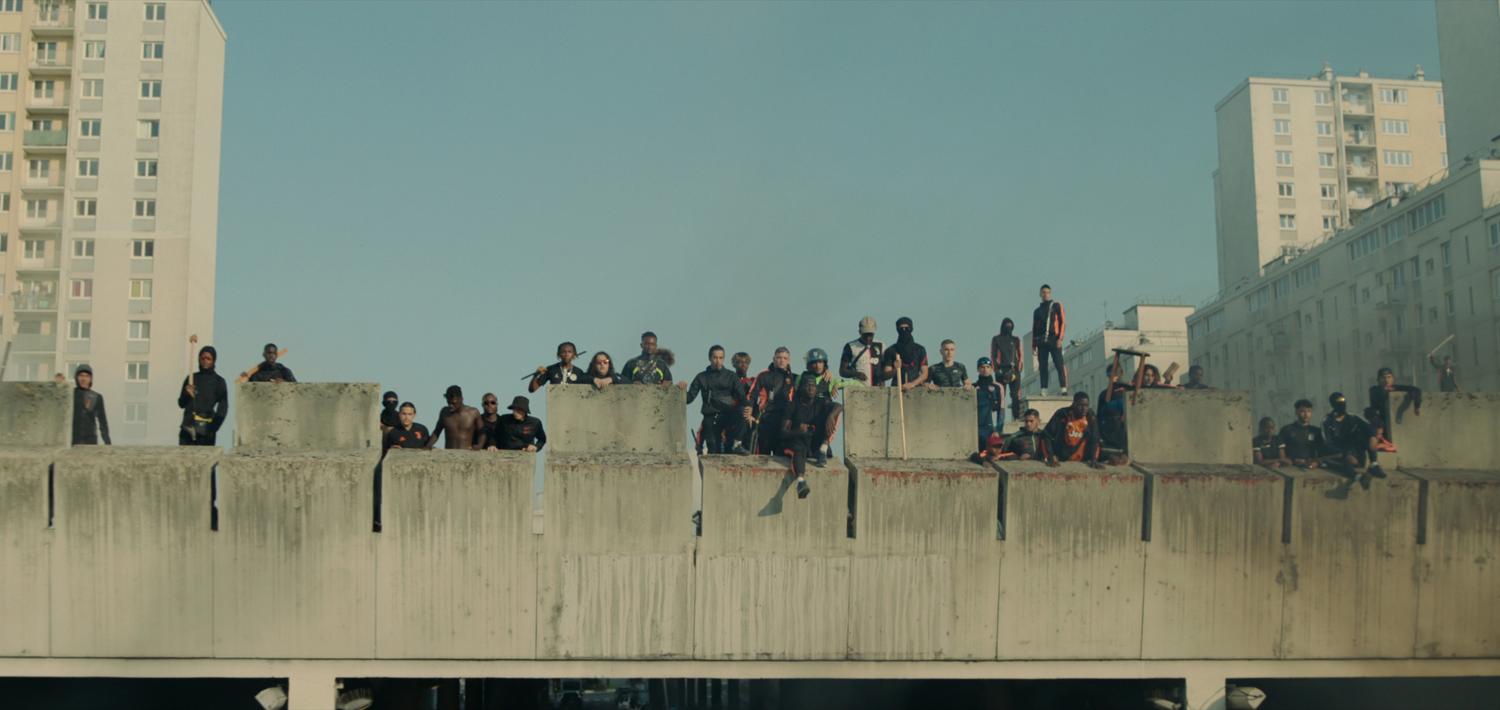The first shot of Athena will be discussed in every writing about the film. A bravura choreography of movement that begins with an intimate close-up of a face and ends, after 10 blood-rushing minutes, with an explosion of revolutionary rage -- a la Les Miserables and Do You Hear The People Sing? transported to a predominantly-Muslim Paris suburb -- that opening shot is so hypnotising and immersive in its non-stop kineticism that we're led to forgive that it's also an earnest show-off, a proud enshrinement of style and attitude over everything else. Romain Gavras, a filmmaker known for making music videos for Jay Z and M.I.A, will cement that approach with many similar shots throughout the film -- long, seemingly uninterrupted shots with parkour camerawork full of angry bodies -- more than enough for aspiring filmmakers of the world to slobber over.
The cinematographer is Mathias Boucard. The script is by Gavras and Ladj Ly, the director of the 2019 Les Miserables (not the musical, but a gritty cop drama set in an immigrant suburb and a precursor of sorts to Athena). The exploration of youth rage in the poor banlieue housing blocks outside Paris has become a subgenre in itself, with roots going back to La Haine (1995) and including non-male offshoots such as Girlhood (2014). But to lump all these films together is not wise: the underlying approach to urban riots, disaffected youth, police brutality and ghettoised resentment in modern France spans a wide spectrum from bare-bone documentary to teen drama, from gangster movies to grandiose stylisation. Athena falls into that last category.
The soulful face we see when the film opens is that of Abdel (Dali Bensallah), one of the four brothers in a Muslim family from the fictitious Athena housing project. Abdel is a French war hero who has returned from combat in Mali. But tragedy struck at home when his youngest brother, 14-year-old Idir, was beaten to death in a brutal incident captured in a video clip that has gone viral. Residents of Athena believe the police were the culprit. Like the George Floyd murder in the US or the flare-up in Bangkok's Din Daeng flats, Idir's death angers the young men of Athena and they explode in mythic wrath, robbing weapons from the police station, running wild on the streets and setting up a fortress around their concrete blocks. Their leader is Abdel's brother, the charismatic, untameable Karim (Sami Slimane). With his penetrating eyes and rock-star hair, Karim sets out not just to avenge his little brother's death, and not just to rain anarchic violence on the police, but to declare a civil war against France itself.
Athena presents itself as a vision of apocalypse: behold the end of society, of France, of the world (why not?). The title evokes a Greek myth -- tragedy, war, conflicting brothers, as Kareem seethes, Abdel wavering between his love for France and loyalty for his own tribe, and their eldest brother Mokhtar (Ouassini Embarek) struggling to salvage his drug trade from the siege.

Situating this fraternal enmity within the larger turmoil, the film contrives to find its beating heart, only for it to be drowned out by the sound and fury of its own making.
Gavras wants to give us a masterclass in controlled chaos. Athena is orchestrated with such exactitude that not a shove or a shout is out of sync. In fact, the film is at its most comfortable when it thrusts us inside its tableau of pandemonium and majestic mayhem, with Kareem gliding around like a beautiful, tormented messiah. But the film becomes impatient and wobbly-footed whenever silence and concentration is required, or when we watch Abdel weighing his allegiance at a key turning point. Flashing lights on the brothers' phone screens showing an incoming call from maman -- mother -- send a brief stab of pain, very briefly, then Gavras pushes on and plunges us right back on the heavy-metal ride again.
Apparently, the fire and brimstone of Athena hurl at us some heavy social messages, for France in particular and for the world in general, perhaps. Marginalised populations no longer endure their status as victims; divisive societies see their fault lines in anything from race to ethnicity, from religion to ideology (I would give anything to see a Thai remake of this, set in Din Daeng). And yet Athena, for all its fancy footwork and pyrotechnical swagger, left us rather cold. For all its badgering and reiterating of ideas and themes, it left us rather blank. A film that turns tough, real-world reality into a showcase of style and choreography can only be appreciated at the surface level.

